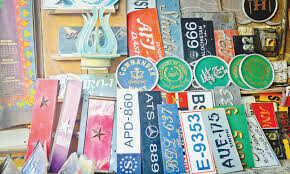KARACHI: A study, co-authored by researchers from three countries, has discovered the presence of second-hand smoke in an alarming 95 per cent of children in Pakistan and Bangladesh, putting them at an increased risk of respiratory tract infections and, in cases of babies with hereditary disorders, death.
The study, published in the Nicotine and Tobacco Research journal, was conducted by researchers at the Department of Community Health Sciences and Medicine at the Aga Khan University (AKU), University of York, UK, and ARK Foundation, Bangladesh.
Second-hand smoke (SHS) occurs when people around an active smoker inhale the exhaled tobacco fumes coming from the smoker. This highlights the deeply disturbing ripple effect of smoking, which can penetrate different social spaces, especially in places with poor smoking restrictions.
The study provides evidence of extremely high levels of SHS exposure in Karachi, where nearly all (99.4pc) of the children were found to be exposed to second-hand smoke, primarily due to male-dominated smoking cultures.
Researchers conducted survey of 2,769 children between 9 and 14 years in Dhaka and Karachi to assess their exposure to second-hand smoke
The levels of SHS exposure in Dhaka and Karachi, the two study sites, indicate widespread and unrestricted smoking, according to the researchers.
The research team conducted a survey of 2,769 children aged 9-14 from 74 primary schools in Dhaka and Karachi to assess their exposure to SHS.
To measure the exposure, they tested the children’s saliva for cotinine. They examined the association between the smoking behaviours of adults in the homes and salivary cotinine levels in the children.
Compared to children living with non-smokers, those living with adult smokers had higher levels of SHS exposure. Similarly, children living in homes permitting indoor smoking had slightly higher levels of SHS exposure than those in homes where smoking was not permitted.
Infant Death Syndrome
Dr Romaina Iqbal and Prof Javaid Khan from AKU pointed out that “the high exposure of children to SHS is in contrast to figures from many developed countries where only a minority of children are now exposed to such risks”.
The effects of second-hand smoke, researchers point out, have been long observed and analysed by scientists around the world and are nothing short of horrendous. It has been proven to contribute to a variety of respiratory tract infections in newborns, infants, and children up to adolescence.
Moreover, research suggests that children born with hereditary disorders are less likely to survive when exposed to second-hand smoke and may have an increased frequency of sudden infant death syndrome.
“The research findings are really alarming. If we cannot protect the children from SHS exposure, they will develop an increased risk of respiratory infections and associated deaths and will be at risk of lower academic performance and a high rate of smoking uptake in later life,” said Prof Rumana Huque from ARK Foundation, Bangladesh, and a co-author of the paper.
Chief Investigator of the study Prof Kamran Siddiqi of the University of York said: “It is important to advocate for smoke-free homes and cars to protect children from SHS exposure. However, in addition to these initiatives, it is also important to enforce smoking bans in public places and transportation, especially those public spaces that children frequently visit, such as playgrounds, parks, and fairgrounds.”
He emphasised that it is essential to complement smoking restrictions with tobacco cessation advice and support in these settings.
The research team called for a comprehensive approach to protect children from this harm, underscoring the need for smoking restrictions in households and the enforcement of smoking bans in public places.
Published in Dawn, July 11th, 2024













































Dear visitor, the comments section is undergoing an overhaul and will return soon.